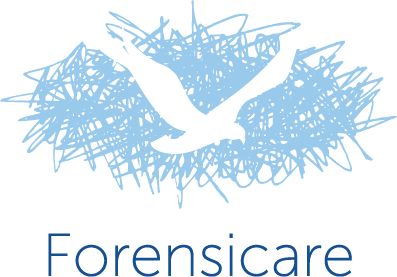
Practice all aspects of your profession.
Our occupational therapists work in discipline-specific roles from grades 1 – 4 and within a diverse range of multi-disciplinary teams, from acute mental health to rehabilitation settings. There are also opportunities to work in generalist roles within specialist prison and community-based teams.
As a Forensicare occupational therapist you will be part of a well-supported, innovative team, where you will receive discipline-specific support, supervision and learning and development opportunities.
What types of roles are available for occupational therapists at Forensicare?
Occupational therapists have varied roles at Forensicare, mostly working directly with consumers.
Starting at graduate level, there are opportunities for all grades of occupational therapists, up to the Chief level. In addition to direct consumer care positions within multidisciplinary teams, further opportunities are available within project and operational management. There are opportunities to experience and learn in many areas of the organisation. We support our occupational therapists to develop their skills within the organisation so they can progress their career in forensic mental health.
What do occupational therapists do at Forensicare?
Our occupational therapists work with consumers to enhance their mental health and wellbeing, through participation and engagement in meaningful occupation and activities, at all stages of their recovery journey.
Forensicare’s occupational therapy practice is primarily guided by the Model of Human Occupation and the use of occupation-centred practice. In addition to individual assessment and intervention, occupational therapists deliver a range of therapeutic programs to support the skill development within a group setting. Working with a variety of stakeholders, we aim to increase the occupational opportunities available to consumers to support them to achieve their goals.
What does a typical day look like for an occupational therapist at Forensicare?
What a typical day will look like varies depending on whether you are working in the hospital, prison, community, or court setting.
If you’re working in one of our bed-based services at Thomas Embling Hospital or a prison, an average day may start with participating in a clinical handover with the multidisciplinary team, encouraging consumers’ engagement in a community meeting and supporting them to plan their day. Some tasks that you might undertake include completing occupational therapy assessments, collaboratively developing occupational formulations with consumers and engaging consumers in individual or group-based interventions to support them in working towards their goals. You might also engage consumers in education courses, employment opportunities and physical exercise, depending on what is available to them. Team based clinical meetings as well as occupational therapy specific meetings will provide opportunities to collaborate with the multi-disciplinary or other occupational therapists. It’s very likely that no day will be the same!
What occupational therapy experience do I need to work at Forensicare?
Previous experience in forensic mental health is not required for you to apply for positions here. We welcome applications from occupational therapists with knowledge of occupational therapy practice in mental health and/or a strong interest in working in forensic mental health. We are proud to invest in your clinical education with many team members joining us as newly qualified therapists, or with limited experience in forensic mental health.
What support, supervision and professional development would I receive?
You will input into your own professional development, in line with discipline strategic priorities. We have a comprehensive appraisal and professional development system that allows for tailored training needs to be identified and incorporated into an annual training plan. The occupational therapy team holds regular reflective practice sessions, provides discipline linked clinical supervision, service development sessions and discipline governance meetings.
You will also benefit from mandatory and forensic mental health specific training which is broad in its scope, meaningful and easily accessible to staff at all grades.
As the service that established the Australian Forensic Occupational Therapy Forum in 2012, our staff are connected to all forensic occupational therapists in Australia and help shape the national agenda for the bi-annual forum.
This is in addition to the full suite of benefits available to all Forensicare employees.
I don’t have qualifications in forensic mental health. Can I still apply?
Yes, we will support your further clinical education in forensic mental health. As an occupational therapist, you are not required to have specific qualifications in forensic mental health to apply for a position with us.
I am a student. Can I apply for a student placement?
Yes, occupational therapy students in their final year of study can join Forensicare through a clinical placement, project placement or honours project. We encourage you to speak with your university placement coordinator should you be interested in a student placement at Forensicare. We do not accept direct applications.
Do you accept applicants from overseas?
Yes, we welcome overseas applicants to apply for occupational therapy vacancies and offer generous relocation support. We’re able to support overseas applicants with their supervised practice requirements in order to apply for registration with the Occupational Therapy Board of Australia and AHPRA.
Find out more about the support we provide as you relocate and settle into life in Melbourne.
Who can I contact for more information?
For more information about occupational therapy at Forensicare, contact Paul Ferguson, Chief Occupational Therapist.
T: (03) 9495 9100




